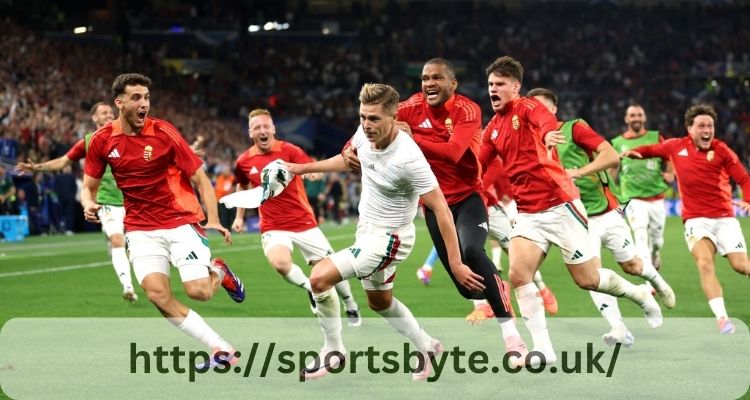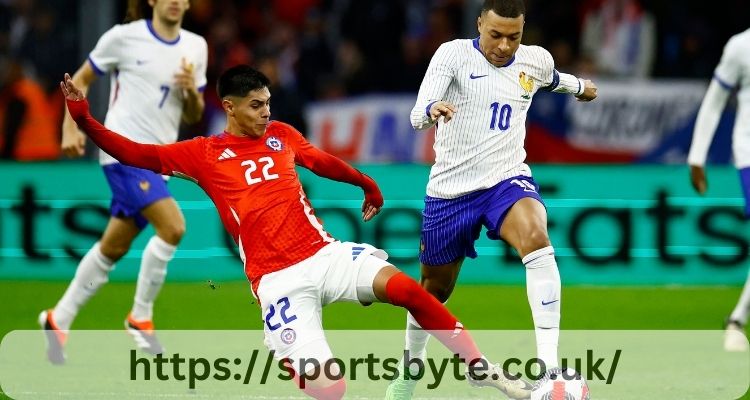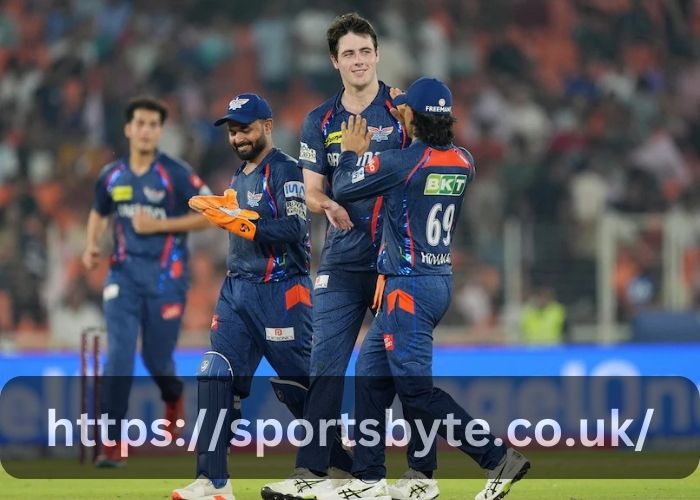Our live match centre provides all of the stats necessary for following Scotland vs Hungary, such as team and player stats, expected goals data, passing networks and more.
Dominik Szoboszlai’s freekick to Willi Orban at the far post set him up perfectly, yet his poor header hit the top of the bar instead of landing directly in its path.
After an horrific collision between Angus Gunn and Barnabas Varga, there is an extended pause as players wait for medical assistance. Here we will discuss the main points or high lights of Scotland National Football Team vs Hungary National Football Team Standings.
Scotland Starting XI:
| No. | Player | Position | Club |
|---|---|---|---|
| 1 | Angus Gunn | Goalkeeper | Norwich City |
| 2 | Anthony Ralston | Right Back | Celtic |
| 13 | Jack Hendry | Center Back | Club Brugge |
| 5 | Grant Hanley | Center Back | Blackburn Rovers |
| 6 | Scott McKenna | Left Back | Nottingham Forest |
| 3 | Callum McGregor | Midfielder | Celtic |
| 4 | Billy Gilmour | Midfielder | Chelsea |
| 8 | John McGinn | Midfielder | Aston Villa |
| 11 | Andrew Robertson | Left Midfield | Liverpool |
| 7 | Scott McTominay | Attacking Midfield | Manchester United |
| 10 | Che Adams | Striker | Southampton |
Hungary Starting XI:
| No. | Player | Position | Club |
|---|---|---|---|
| 1 | Péter Gulácsi | Goalkeeper | RB Leipzig |
| 14 | Bendegúz Bolla | Right Back | Bologna |
| 21 | Endre Botka | Center Back | Ferencváros |
| 6 | Willi Orbán | Center Back | RB Leipzig |
| 24 | Márton Dárdai | Left Back | Hertha BSC |
| 17 | Callum Styles | Midfielder | Barnsley |
| 13 | András Schäfer | Midfielder | Union Berlin |
| 11 | Milos Kerkez | Left Midfield | AZ Alkmaar |
| 20 | Roland Sallai | Attacking Midfield | SC Freiburg |
| 10 | Dominik Szoboszlai | Attacking Midfield | RB Leipzig |
| 19 | Barnabás Varga | Striker | Puskás Akadémia |
Scotland National Football Team
The Scotland national football team represents Scotland internationally. Established in 1872, they are one of the oldest national teams in international football; having qualified eight times and won four times respectively at UEFA European Championship competition (most recently 2024). Home matches take place at Hampden Park in Glasgow.
Scotland and England have long held a heated rivalry, dating back to when Scotland played England in its inaugural international match in 1872. Since then, Scotland have recorded 22 wins, 17 draws, and nine losses to England at international matches with both teams taking part in FIFA World Cup finals as early as 1950 and 1958 respectively. They also shared 24 British Home Championship titles between them while 24 have gone solely their way and 17 shared with another side.
Scotland was widely considered one of the premier teams worldwide during the 1950s and was often known by their nickname, “Wembley Wizards.” Reaching the semi-finals at 1954 FIFA World Cup before losing out to Italy, then going on to win 1957 UEFA European Championship by finishing first in their group and qualifying for 1958 FIFA World Cup tournament; their squad included iconic players such as Denis Law, Kenny Dalglish and Graeme Souness – among many others.
At the 1994 FIFA World Cup, Scotland were on track to qualify. Unfortunately, however, a shock defeat by Romania in their final qualifier saw them miss out due to goal difference, falling short against Bulgaria and Portugal instead. Following this resultant setback, manager Andy Roxburgh resigned while Craig Levein took charge as caretaker manager of Scotland for an interim period.
Tommy Docherty replaced Levein after two difficult years as Scotland head coach, which saw them lose 5-0 to England at Wembley in the opening match under him. That year, however, they managed to secure an outright British Home Championship title – beating England at Hampden before drawing with them at Wembley for an end-of-season draw – before eventually drawing England 2-2 in Wembley for the title win.
Scottish qualification for UEFA Euro 2012 qualified slowly but were still within striking distance when Levein was replaced by former Southampton manager George Burley for the final stage. Grouped alongside Lithuania, Liechtenstein, the Czech Republic and Spain for final qualifying competition, Scotland had a good finish – winning all of their remaining qualifying matches before finishing fourth overall – but were ultimately knocked out on away goals rule after suffering a 2-1 loss against Croatia in November 2012.
Hungary National Football Team
Hungary will play Scotland in an extremely important Group A contest that could determine their destiny at Euro 2016. A win will secure them a last-16 slot while defeat will mean early exit from tournament play – both teams will surely want to take home all three points! Both will surely try their hardest in order to take home victory; as a result we could expect some goalscoring action!
First half proceedings were close, with neither team creating many chances. Dominik Szoboszlai came close with a free-kick that hit the bar while Stuart Armstrong went down under pressure from Willi Orban inside the box but had his penalty claims denied by referee Sean Clarke.
Scotland dominated possession and created more chances during the second half, yet were unable to convert them into goals. Scott McTominay attempted a corner which caused chaos within the box – however Roldan Sallai couldn’t get his foot on it to score.
As the game entered the final 10 minutes, Hungary began pressing more aggressively and looked dangerous on the break. Dominik Szoboszlai made several darting runs through several defenders but his cross was blocked by Anthony Ralston before it could reach its intended destination.
With under two minutes left on the clock, Hungary pushed forward and launched a counter attack. A long pass found Csoboth who ran into the box before finishing easily for home fans’ joy and an essential win.
Hungary will move onto the knockout stages as one of the best third-place finishers, while Scotland must rely on other results going their way in order to avoid an early exit from this tournament. Gordon Strachan’s side had won both their previous matches unbeaten before this setback occurred; they appeared poised for progression before the final whistle blew.
Head-to-Head Record of National Football Teams
On Sunday, Scotland will put their hopes of qualifying for the knockout stage of an European Championships match to the test when they take on Hungary. Steve Clarke’s side are looking to respond after being humbled 5-1 against Germany in Group A play and Manchester United midfielder Scott McTominay could lead their attack.
Hungary will be looking to avoid their third straight loss and secure victory as quickly as possible. Marco Rossi’s side have suffered two consecutive Euro 2024 matches without a victory; their last defeat coming at the hands of England with just Kevin Csoboth’s injury time goal enough to seal it. But that result came only after striker Angus Gunn had hit Csoboth with an accidental collision on the edge of the box which sent Hungarian players reeling into chaos on the pitch.
At least nine times have passed between these sides, with their first competitive fixture taking place in 1938 and their most recent meeting being an international friendly in 2018. Out of those nine games played, Scotland have won four times, sharing victory three times or drawing.
Both teams have made drastic adjustments ahead of this decisive encounter and much hangs on its outcome. Kieran Tierney was forced off against Switzerland with a hamstring injury, while Ryan Porteous remains suspended following his red card suspension. Callum Styles will cover at centre-back while Andrew Robertson and Scott McKenna may join them as starters.
Hungary will enter this crucial group game with greater confidence following Csoboth’s late winner against England, giving them more momentum heading into Stuttgart Arena against Scotland where both bottom teams in need of wins have met in an international friendly match in March 2018 at MHPArena.
Predictions of National Football Teams
Scotland have qualified for four European Championship finals — but have never advanced beyond the group stage. Their latest attempt came at Euro 2024 where, following a draw and loss to Netherlands on goal difference, Scotland were eliminated on goal difference alone from contention for qualification to the knock-out phase of Euro. Scotland have never advanced past the initial rounds in any World Cup tournament either; having been defeated by Brazil in 1974, Holland in 1978 and Soviet Union in 1982 respectively.
The Scottish Football Association maintains a roll of honour to recognize those players who have made over 50 appearances for Scotland since World War Two, such as Jim Baxter, Davie Cooper, Hughie Gallacher and Billy McNeill (along with every pre-Second World War player), along with contemporary stars such as Scott McTominay and Ryan Christie.
Even though their recent history may be limited, Germany still boasts plenty of talent for them to showcase on the pitch. If they can remove themselves from expectations and focus solely on individual performances then no reason why they won’t do well in Germany.
Scots would find much-needed confidence boosting victory against Hungary before entering their tournament group stage. Losses to Croatia or Spain would put them on the outside looking in, while beating their closest rival will give them a fighting chance at finishing third overall in their group.
Scots have not won a competitive match since their defeat by Portugal in November 2016, yet are hopeful of qualifying for their first major tournament in two years. Manager Gordon Strachan remains under pressure but earned some trust back with fans with their 2-0 victory against England at Wembley in a friendly in February 2017.
Hungary are still working to build their reputation as a team that can challenge for a place at the finals, yet remain some way off. Their campaign has been derailed by injuries and suspensions; their opener in Nations League group stage was unsuccessful as they have yet to score in it. Furthermore, Hungary have come under attack from Carpathian Brigade members who reflect Orban’s hardline policies on immigration; these fans paint an unpleasant picture of significant sections of their fanbase that has taken root there.
Also Read: Croatia national football team vs italy national football team lineups



